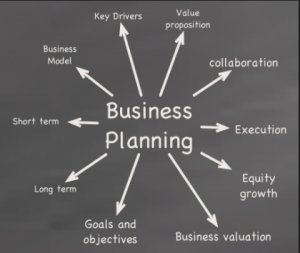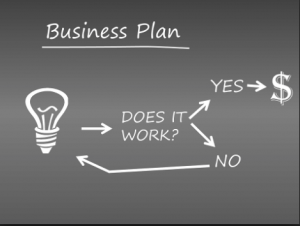you use Business Dispositions and Reorganizations
Paystubmakr.com presents you the article about,
Starting a New Business
When starting a new business, many costs incurre before the business begins operating. These costs can generally be classified in one of three categories:
 Paystub Generator for your payroll
Paystub Generator for your payroll
Organization Costs
Organization costs are incurring in creating an entity such as a corporation or a partnership. Organization costs include the costs of legal services incident to the organization of a corporation or partnership, such as drafting the corporate charter, by-laws, minutes or organizational meetings, terms of original stock certificates, partnership agreement and the like, and necessary accounting services and filing fees.

Creating a Winning Startup Business Plan
Start-up Costs
Start-up costs incurres in connection with the establishment of new business after the entity has been formed but before operations begin. Start-up costs include costs investigating the creation or acquisition of an active trade or business or costs of starting an active trade or business.
Note: Organization and start-up costs are capital costs that cannot be currently expensed for tax purposes. An election to amortize organization and start-up costs over a period of not less than 180 months can be made in the year the business begins.
 Paystubmakr.com Your payroll mate
Paystubmakr.com Your payroll mate
Syndication Costs
Syndication costs are incurred in connection with the issuing and marketing of interests in a corporation or partnership-type entity. Syndication costs include:
(1) Brokerage fees,
(2) Registration fees,
(3) Fees of the underwriter or placement agent,
(4) Legal fees for securities advice and advice about the adequacy of tax disclosures in the prospectus or placement memorandum,
(5) Accounting fees for preparation of representations to be included in the offering materials, and
(6) Costs of printing the prospectus, placement memorandum, and other selling and promotional material.
Syndication costs cannot be amortized or even deducted when the entity is liquidated. Syndication costs are charged against capital and never deducted by the entity for income tax purposes. They do not reduce the cost basis of an owner’s equity in the company and may reduce the gain if and when the owner’s investment is sold.
 Paystub for paycheck online Creator at your service
Paystub for paycheck online Creator at your service

WANT TO START A BUSINESS? WATCH THIS VIDEO!
Buying an Existing Business
Buying an existing business can have considerable advantages over starting from scratch. Advantages include:
(1) The chance to start out with an established customer base;
(2) The possibility of a regular draw or salary right from the start;
(3) Less risk of business failure, since you know there is a viable market if the business is already profitable;
(4) An opportunity to have the seller stay on as an employee or consultant for a transitional period;
(5) Ability to focus more attention on service and operations.
Finding a Business for Sale
There are some ways to find a business that is up for sale:
1. Brokers. These are an excellent source. The seller pays Their fee (usually 10% of the selling price).
2. Advertisements. The business for sale section of the local newspaper, regional magazine or trade journal is a major source of leads to businesses that are for sale.
3. Customers & Suppliers. Every industry has customers and suppliers. These companies are great for leads on business where the owners may be ready to retire or sell for other reasons.
4. Attorneys & Accountants. These professionals are sometimes a good source for information on businesses for sale.
5. Visit the local Chambers of Commerce. Usually, they know a lot of the local business opportunities that you can get for free.
6. Direct Approach. If you see a business that you might like to buy, sometimes the best approach will be to meet the owner and hear if they are willing to sell it.

ENJOY! Pinterset Jokes on startups
 Paystub Creator template at your service
Paystub Creator template at your service
Economic Questions
-
Why is the business for sale?
-
What reputation does the business have?
-
How profitable is the business
-
What are the business’ assets and liabilities?
-
Will you have to negotiate a new lease?
-
Can assets be acquired instead of stock, so that the buyer does not incur unknown and unmeasurable liabilities?
-
Is there adequate value about cost on a rate of return basis?
-
Is the purchase price fixed with defined liabilities and exposures?
-
Is there protection against future competition by the seller?
-
What warranties are given to assure values, and with what security?
-
Will key customers, contracts, and employees remain?
-
How can the purchase be financed at the least cost?
-
Can post-acquisition business integration be achieved successfully?
-
What is the seller’s experience rating for unemployment tax purposes?
-
What are the real costs of existing benefit plans?
-
How will employee benefits be affected by the acquisition?
-
Will the acquisition adversely affect employee relations?
-
Is there a union?
-
What is the financial condition of existing benefit plans?
-
How should benefit plans be handled – terminated, continued, or frozen?

Best States to Start a Business – Definitive Ranking of All 50 States
Tax Considerations
In the negotiations, each party must carefully consider the tax objectives of the other party. Otherwise, it may not be possible to reach an agreement. In particular, if the sellers have substantial unrealized appreciation in their interests in the business, the buyers will often find that they cannot Investigate the business unless they structure the transaction to either minimize or postpone any potential taxable income of the sellers.
Tax Questions
-
How much of the purchase price is deductible, and how soon?
-
Is any of the seller’s tax liability being assumed?
-
Will the sale result in a sales tax liability?
-
Can acquired tax attributes be used? How can the risk of losing these benefits be reduced? How soon can the acquired benefits be used?
-
How can you maximize post-acquisition tax benefits?
-
What are the implications of state and local taxes?
-
There are two ways to acquire a business held in corporate form – by acquiring either its stock or assets. The transaction can be nontaxable, partly taxable, or fully taxable to the sellers.
